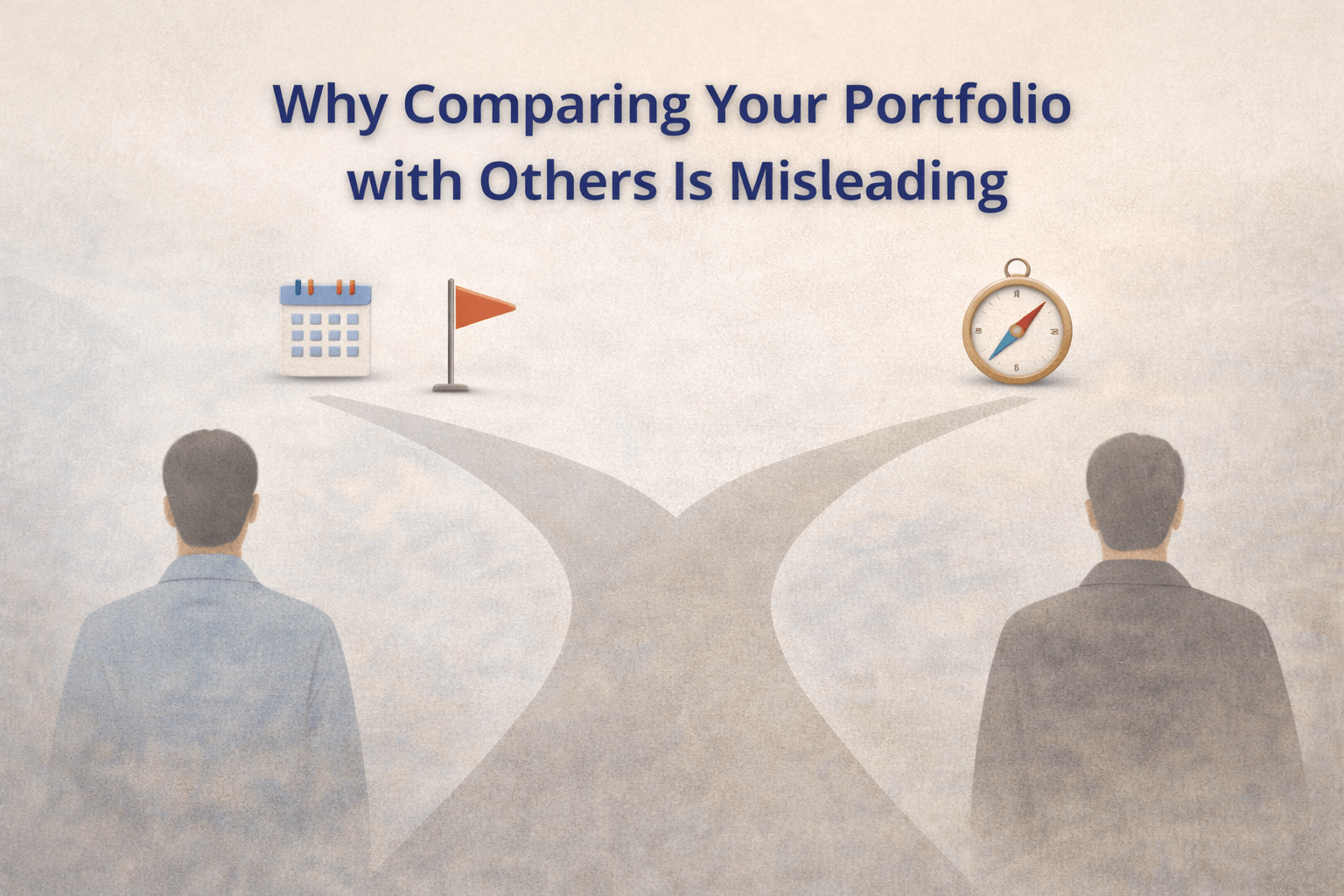It is often said that home is our first school and parents are our first teachers. For most of us, our family, by default, becomes our first “Financial Guru”. We also inherit many habits from our antecedents which is natural and is the law of genetics. And this is evident when it comes to our investing habits also.
Let us go back on time to understand what investing meant for our families 15 – 20 years back (for many of you who aren’t familiar). Back then, majority of the population used to invest in fixed return products like FD, PPF, NSC, KVP etc. All these investment products used to fetch an interest rate north of 12%. Yes, you read it right – “12% Guaranteed Returns”. If we apply the “Rule of 72” (the number of years taken to double an investment), it implies that the invested money would double in 6 years – Guaranteed! Unfortunately, today these three words – “Guaranteed High Returns” cannot be written together. Interest rates have been trending downwards and we all have witnessed this in the last few years. if we compare the trends of other major countries, higher interest rates may possibly remain a thing of past in India too.
Our predecessors’ income/salary was way too less than ours and so were their needs and wants. Apart from a few festive spends in a year, their major financial goals in life were – Children’s education (for a few selected ones), children’s marriage, and owning a home towards their late 40s or early 50s. Our grandparents or parents will vouch for this without a second thought. Let us understand how their wealth creation journey via investing has been. Historically, two asset classes – Real Estate and Gold have created considerable wealth. So much that many of them have seen their wealth multiply. And a lot of them who had a lower risk appetite, laid their trust on fixed return products like PPF as the interest rates were attractive. We can easily infer that we have inherited these investment traits from our predecessors. We feel comfortable with these investments largely because of the confidence induced by our family’s success. With our friends & colleagues also following the same approach, it further strengthens our faith.
Now let us look at Equity as an asset class for wealth creation. It has an excellent track record for wealth creation. Though it has been in existence globally for over a century and in India for over three decades, it is still an under-penetrated space. The reason again can be traced back to our history. In India, equity was treated as a choice limited to the richer class. A lot of people even believed that equity was nothing less than a gamble (surprisingly, even today, many think the same way). But the major reason, we feel, was lack of knowledge and accessibility to information. And of course, we cannot forget the stock markets scams in the early 1990s and 2000s which were a result of exploitation of the systemic loopholes that existed initially. All these, along with the volatile nature of the market, have that kept most people away from investing in equities for quite a long time. Though investing in equities and mutual funds is gaining popularity, but the percentage of the Indian population and the share of household savings investing in this asset class, is miniscule. In fact, most of us hardly consider Equity Mutual Funds as the primary investment vehicle for our long-term wealth creation. Can we ascribe this also to our inherited behaviour? The answer is a definite yes!
What is the common thing among Real Estate, Gold and PPF? We always consider these as our long-term investments. We are convinced to hold PPF for 15 years or more. Real-Estate and Gold (in most families) usually end up being a part of our Will or Legacy Planning. Many of us even buy an apartment for our young children, who, we aren’t sure which city/country would they end up settling in. Though the valuation of Real Estate and Gold change frequently, we do not often act or rush to either encash the growth or secure the capital invested. Why? Because we are convinced that irrespective of fluctuations in value in the short term, it will grow if we hold on to it for a longer term.
But do we treat our Mutual Fund investments the same way? Surprisingly, our psychology does not work the same way for our investments in equity mutual funds. Unlike earlier, today the access to information is easy and availability of abundant data helps us to evaluate many options (and sometimes even confuse). This leads us to analyse it frequently which in turn stimulates us to act. In this process we tend to get short-sighted. The historical data of Equity Mutual Funds clearly indicates that it’s returns have been far more superior than other asset classes over long term. In fact, the market volatility has worked in our favour to create wealth in the long term. All we need is, to look at it through a different set of lenses.
If we can hold on to the PF till retirement, PPF for 15 years and Gold & Real Estate infinitely, why can’t we consider holding the equity-oriented products at least for 10 years, if not for a lifetime? Neither the investment products nor the market cycles should influence our financial decisions. We need to learn to tame our psychology/behaviour to ensure we are the owners of our Financial Independence.
Our Stance: Our behaviour is the key to our overall success. We often adjust our mindset and behaviour to manage a new boss at work, or a challenging business environment, or even our personal relationships. All our choices throughout our life, be it education or occupation, are always focused on acquiring more and more wealth. In fact, we pick the best institutions for our educational needs, hire an architect for building our homes, consult a reliable doctor for our health issues. But when it comes to investing our hard-earned money, we tend to rely only on our relatives, friends, and now a days Google University too. Knowingly or unknowingly, our investment decisions get deeply influenced by the societal factors surrounding us. Why don’t we adapt the required behaviour when it comes to investing habits? Particularly when we are aware that it is for our own benefit – “Our Financial Independence”.

Shreedhara is the Founder & Director of Ara Financial Services Pvt. Ltd. He has an experience of over 2 decades in Financial Service Industry with majority of it in guiding individuals and institutions on their investments requirements.









